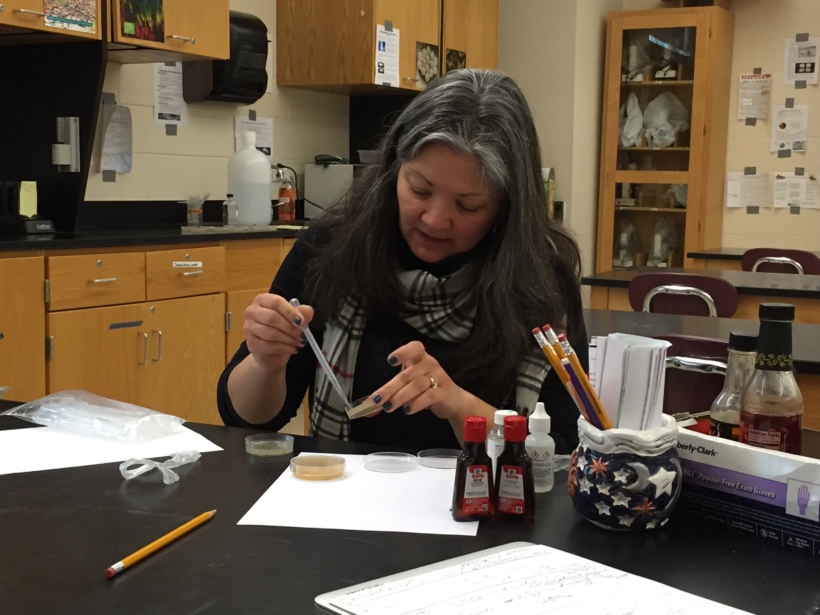News
WW Academy: Teaching and Learning Innovation Grants

(photo courtesy of the BioBuilder Educational Foundation)
In an effort to engage the larger community at the Massachusetts Institute of Technology, the Woodrow Wilson Academy of Teaching and Learning and the MIT Teaching Systems Lab (TSL) has awarded a series of Teaching and Learning Innovation Grants (TLIG), ranging from $50,000 to $200,000, for MIT researchers working to advance the quality of teacher preparation, particularly rooted in the needs of the Academy.
“We believe that TLIG is a direct collaboration channel to engage the broader MIT community and bring MIT’s innovative models of STEM teaching and learning to the design of the Academy curriculum,” says says Yoon Jeon Kim, a research scientist at the MIT TSL and WW Academy collaborator. “Through this grant, TSL and the Academy collaborate with the MIT scholars to explore implications of these educational innovations for teacher education.”
When Dr. Natalie Kuldell, a trained biologist and 2016-2017 TLIG recipient, joined the department of biological engineering at MIT she was struck by the different way her engineering colleagues thought. “,I loved taking an engineering lens to look at life science.” says Dr. Kuldell. “Given how well it was working with my MIT students, I wanted to bring it out to a broader audience.”
Thus, in 2011, Dr. Kuldell founded the BioBuilder Educational Foundation, a nonprofit to support open-source, free curricula that blend life science and engineering models to bring hands-on STEM experiences to classrooms from middle school through the college level. As Dr. Kuldell worked with Boston-area teachers to implement BioBuilder, some of the teachers were recruited to develop more engineering-based curriculum to teach evolution to high schoolers.
“The way we have been teaching evolution requires students to take a leap of faith and believe in something that happened in the past and to see evidence for evolution now,” says Dr. Kuldell. “We wanted to build a system that students could understand now and then watch it evolve. In this way, we hoped they could draw conclusions on evolution based not on what we’re asking them to believe happened in the past, but based on what they have observed as a system that they built.”
The TLIG will aid Dr. Kuldell to further develop this curriculum. She is engaging with local educators as partners in this development, much in the same way that the WW Academy is working with local school districts. The design-thinking model used by the WW Academy and reinforced by the collaboration with MIT is evident in the grant project. By involving teachers from the very beginning, not only will the evolution curriculum be informed by the realities of the classroom, but it gives the teachers a great deal of ownership over what is being built.
“It’s not only curriculum development,” says Dr. Kuldell. “It is also professional development for the teachers in a very meaningful way… they’re excited to be developing the curriculum. I think it is invigorating for them to be engaging at an intellectual level with curriculum development and realizing their potential in those ways.”
These sorts of partnerships and collaborations are at the very core of the WW Academy program. “I think some of the work that the Academy is focused on is this development of expert and wonderful teachers,” says Dr. Kuldell. “So I think that the overlap [between the Academy and BioBuilder] is this notion that we can not just empower teachers to be agents for delivery of information, but actually engage them as partners in education and education reform.”
The WW Academy team is including a wide range of perspectives in its design that includes the inaugural Design Fellows, teachers, as well as staff and faculty at MIT. “I think it’s really important that we reconsider the fundamental questions around teaching,” says Dr. Kuldell. “The Academy is doing that, and I am trying to do that.”
The 2017 grantees include research that is focused on the application of learning sciences to teaching math, the use of technology to demonstrate students’ thinking, and the use of maker-space projects for STEM subjects.

